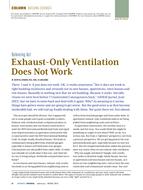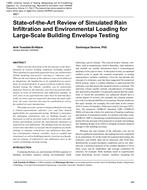During power outage servers in the data centers are powered by uninterrupted power supply (UPS). At the same time, the cooling system components such as CRACs, AHUs, and chillers stop operating for a short period until powered by alternate power sources. During this period servers continue generating heat in the data center room without active cooling. It is common notion that data centers contain large thermal mass, and hence, large heat capacity in the steel rack enclosures to protect servers from the thermal shock due to rising room air temperatures. However, the rate of air temperature rise and the availability of rack thermal mass depend on several factors including the height of the data center room, number of rack enclosures and their size, number of rack rows and their layout, and heat load density of a data center. It is crucial for design engineers and facility managers to know how much time can be available for restarting the active cooling systems before servers reach automatic shutoff temperatures. With the help of a heat transfer model this paper systematically analyzes the effect of various parameters and the impact of rack thermal mass on the time that air requires to reach the thermal shutoff threshold temperature.
Citation: ASHRAE Conference Papers, 2010, vol. 116, pt. 2, Albuquerque, NM
Product Details
- Published:
- 2010
- Number of Pages:
- 13
- File Size:
- 1 file , 570 KB
- Product Code(s):
- D-AB-10-C022


